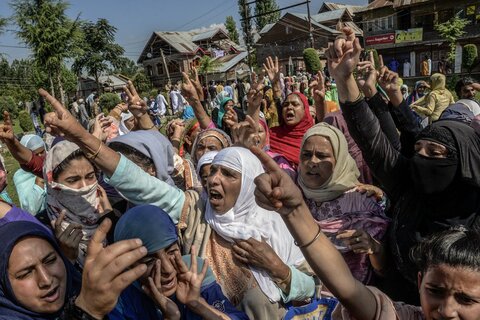Hawzah News Agency (New Delhi, India) - Families in a Muslim-dominated region have been cut off from loved ones. Local leaders have been imprisoned. troops roam the streets. Communication links have been severed.
The Indian government's dramatic crackdown on Jammu and Kashmir is now a week old, and has shown little sign of abating, with a heavy military presence on the streets of the Kashmir Valley and major mosques closed on Monday on Eid al-Adha, the most important festive date on the region’s calendar, when local Muslims usually attend congregational prayers and host visitors with sweet treats.
For some observers, the actions of India’s central government in revoking Kashmir's special constitutional status on Aug. 5the has raised unsettling parallels with the actions of another powerful country toward its Muslim-minority population: China.
Authorities in China’s western Xinjiang region have used many of the same tactics, at one point disconnecting the internet for nearly 10 months, while maintaining a heavy security presence on roads and, in the past two years, largely cutting off local Muslims from family living elsewhere.
Perhaps more importantly, Indian Prime Minister Narendra Modi has echoed Chinese rhetoric in his defence of his government's actions in Kashmir, saying the heavy-handed intervention will usher in a new era of development, stability, investment, infrastructure construction and tourism – measures that, he said, ”will rid Jammu and Kashmir of terrorism and separatism." In Xinjiang, officials have emphasized similar steps in their efforts to quell what they call a plague of radical extremism.

